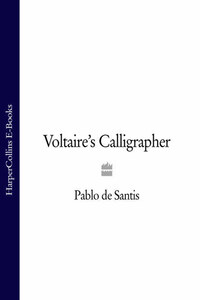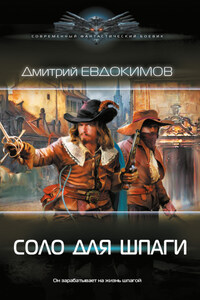I arrived in this port with very few belongings: four shirts, my calligraphy implements, and a heart in a glass jar. The shirts were threadbare and ink-stained, my quills ruined by the sea air. The heart, however, was intact, indifferent to the voyage, the storms, the humidity. Hearts only wear out in life; after that, nothing can hurt them.
There are countless philosophical relics in Europe today, most as fake as the bones that churches revere. Saints used to be the only protagonists of such superstition, but who today would fight over a rib, a finger, or the heart of a saint? The bones and skulls of philosophers, on the other hand, are worth a fortune.
If an unwary collector even mentions the name Voltaire to any antiquarian in Paris, he will be led to a room at the back and, in absolute secrecy, shown a heart that resembles a stone, locked in a gold cage or inside a marble urn. He will be asked to pay a fortune for it, in the name of philosophy. A hollow, funereal grandeur surrounds these fake hearts while the real one is here, on my desk, as I write. The only opulence I can offer it is the afternoon light.
I live in a cramped room, where the walls erode a little more each day. The floorboards are loose and some can be lifted with ease. That’s where I hide the glass jar, when I go to work in the morning, wrapped in a frayed, red velvet cloth.
I came to this port fleeing all those who saw our profession as a reminder of the former establishment. You had to shout to be heard at the National Convention, but we calligraphers had only ever learned to defend ourselves in writing. Although someone proposed that our right hands be cut off, the egalitarian solution prevailed, and that limited itself to cutting off heads.
My colleagues never lifted their eyes from their work or tried to decipher the shouts that could be heard in the distance. They continued to patiently transcribe texts that had been assigned by now decapitated officials. Sometimes, as a warning or a threat, a smudged list of the condemned would be slipped under their doors, and they would copy it out, never noticing their own name hidden among the others.
I was able to escape because time had taught to me to look up from the page. I gave myself a new name and a new profession, and forged documents to present at the checkpoints between one district and another, one city and another. I fled to Spain, but my fugitive impulse was such that I didn’t stop there; I wanted to get even farther away. With my lack of funds and ragged appearance, I boarded the only ship that offered me passage. It was the first time I had ever been on a boat, perhaps because of the memory of my parents, who had died in a shipwreck. As partial payment for my fare, I took dictation for the captain (he had a mountain of correspondence to attend to from women and creditors). Writing those letters and having my mistakes corrected was how I learned Spanish.
It was a long journey. The ship put in at port after port, but none of them seemed right. I would stare at the buildings along the coast, waiting for a sign that I had found my place, but there was only one sign I was prepared to understand: the one that says there is nowhere further to go. This was the ship’s last stop.
This is a city people come to by mistake, those who are fleeing some peril or government, and wind up running away from the world. On the boat to shore, I was sure my professional life was over, that I would never see another drop of ink. Who in these dark, muddy streets could possibly need a calligrapher? I was wrong: I soon discovered a profound reverence for the written word, even greater here than in the cities of Europe. They love their signed, sealed directives; their papers that pass from hand to hand, generating still more paper; their detailed orders from Europe; their lists of items ruined during the voyage. Everything is stamped and signed with a flourish, then duly filed in a cabinet never to be seen again, swallowed up by the disarray.
Each morning, in a frigid office at city hall, I transcribe official documents and legal rulings. My colleagues often mention the name Voltaire, but they’d never believe I once worked for him. They all assume everything that arrives on these shores is either untrue or unimportant.














